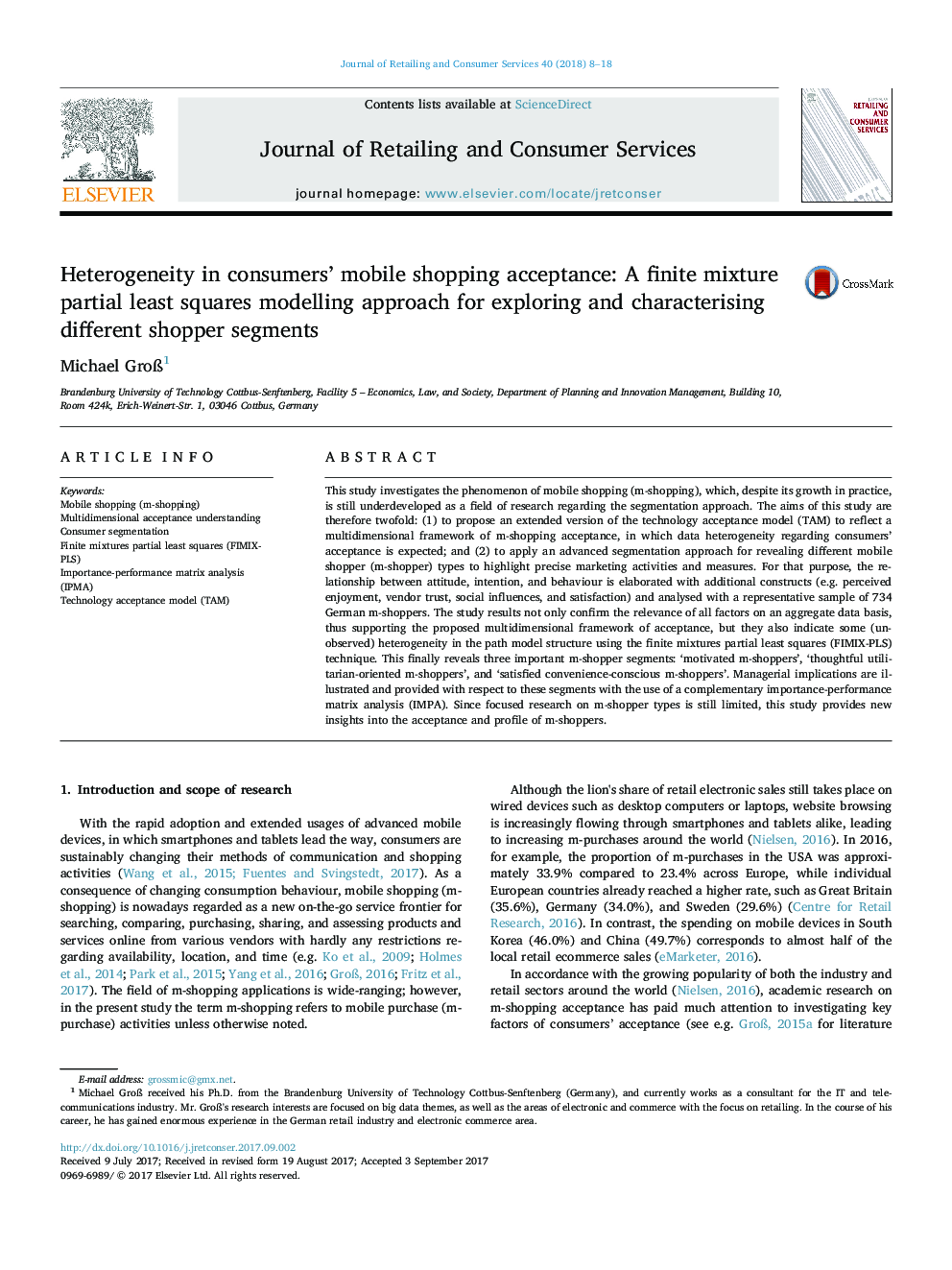| Article ID | Journal | Published Year | Pages | File Type |
|---|---|---|---|---|
| 5111202 | Journal of Retailing and Consumer Services | 2018 | 11 Pages |
Abstract
This study investigates the phenomenon of mobile shopping (m-shopping), which, despite its growth in practice, is still underdeveloped as a field of research regarding the segmentation approach. The aims of this study are therefore twofold: (1) to propose an extended version of the technology acceptance model (TAM) to reflect a multidimensional framework of m-shopping acceptance, in which data heterogeneity regarding consumers' acceptance is expected; and (2) to apply an advanced segmentation approach for revealing different mobile shopper (m-shopper) types to highlight precise marketing activities and measures. For that purpose, the relationship between attitude, intention, and behaviour is elaborated with additional constructs (e.g. perceived enjoyment, vendor trust, social influences, and satisfaction) and analysed with a representative sample of 734 German m-shoppers. The study results not only confirm the relevance of all factors on an aggregate data basis, thus supporting the proposed multidimensional framework of acceptance, but they also indicate some (unobserved) heterogeneity in the path model structure using the finite mixtures partial least squares (FIMIX-PLS) technique. This finally reveals three important m-shopper segments: 'motivated m-shoppers', 'thoughtful utilitarian-oriented m-shoppers', and 'satisfied convenience-conscious m-shoppers'. Managerial implications are illustrated and provided with respect to these segments with the use of a complementary importance-performance matrix analysis (IMPA). Since focused research on m-shopper types is still limited, this study provides new insights into the acceptance and profile of m-shoppers.
Related Topics
Social Sciences and Humanities
Business, Management and Accounting
Marketing
Authors
Michael GroÃ,
